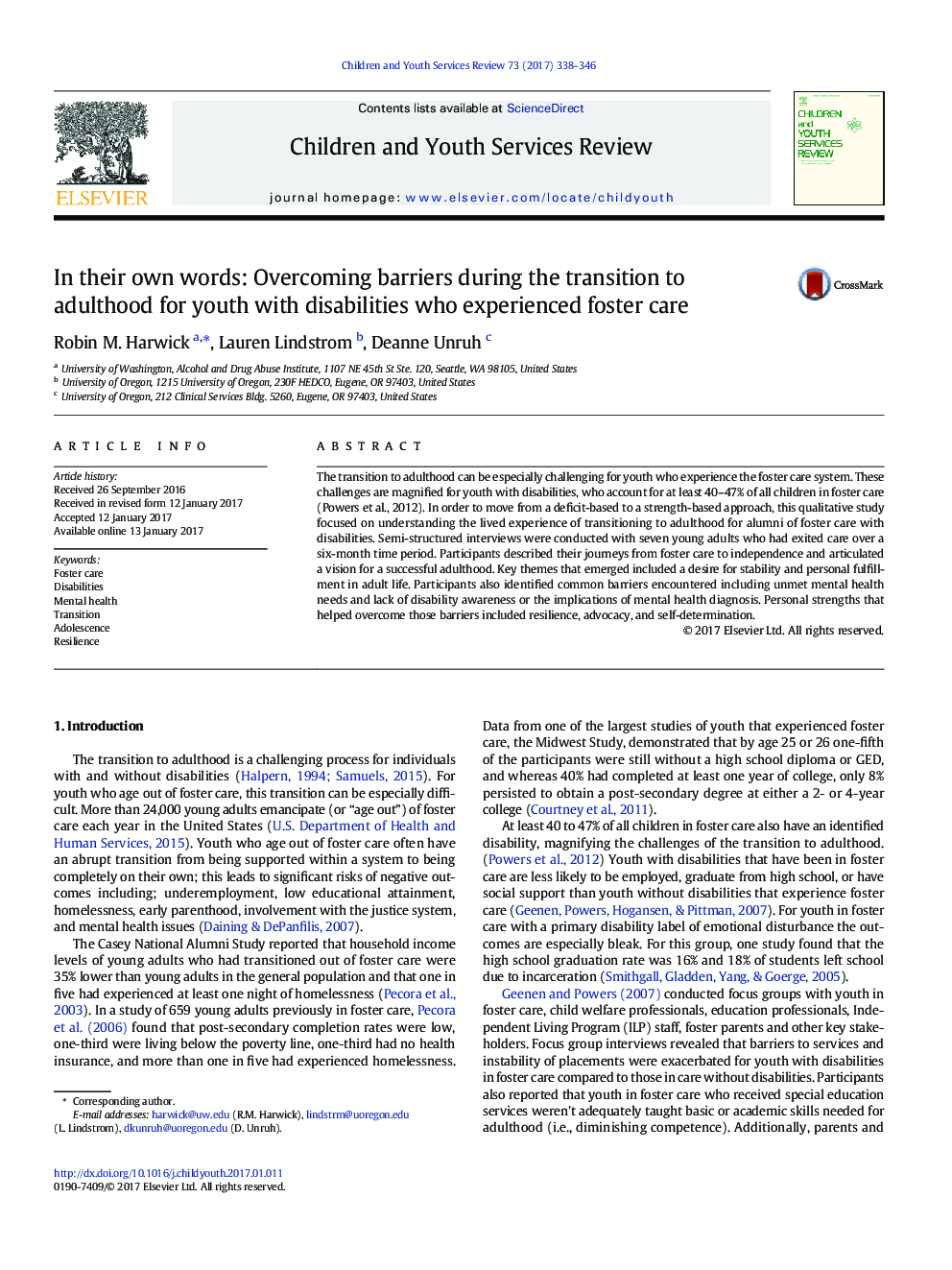| Article ID | Journal | Published Year | Pages | File Type |
|---|---|---|---|---|
| 4936593 | Children and Youth Services Review | 2017 | 9 Pages |
Abstract
The transition to adulthood can be especially challenging for youth who experience the foster care system. These challenges are magnified for youth with disabilities, who account for at least 40-47% of all children in foster care (Powers et al., 2012). In order to move from a deficit-based to a strength-based approach, this qualitative study focused on understanding the lived experience of transitioning to adulthood for alumni of foster care with disabilities. Semi-structured interviews were conducted with seven young adults who had exited care over a six-month time period. Participants described their journeys from foster care to independence and articulated a vision for a successful adulthood. Key themes that emerged included a desire for stability and personal fulfillment in adult life. Participants also identified common barriers encountered including unmet mental health needs and lack of disability awareness or the implications of mental health diagnosis. Personal strengths that helped overcome those barriers included resilience, advocacy, and self-determination.
Related Topics
Health Sciences
Medicine and Dentistry
Perinatology, Pediatrics and Child Health
Authors
Robin M. Harwick, Lauren Lindstrom, Deanne Unruh,
